Recently, the National Seminar on Integrated Operation and Governance of Data Trading Venues was held. Co-organized by Wuhan University and the Data Elements Committee of the China Information Industry Association, the event was undertaken by the research team of the National Natural Science Foundation of China (NSFC) Special Project "Research on the Functional Positioning, Operational Mechanisms, and Governance Mechanisms of Data Trading Venues" (Approval No. 72442030). Over 60 experts, scholars, and representatives from data trading venues participated in the seminar.
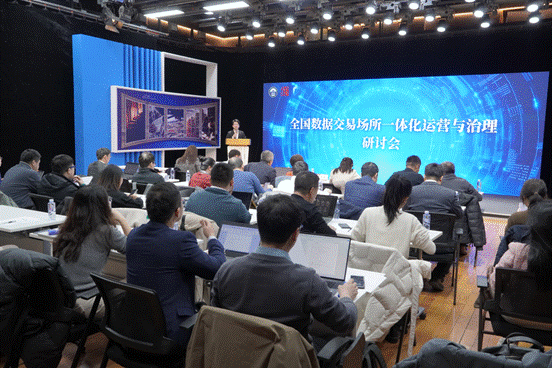
Professor Jiang Wu, Associate Dean of the School of Information Management at Wuhan University and head of the project, shared insights on the integrated operation and governance of nationwide data trading venues. He noted that China's unified data element market currently faces multiple challenges, including a lack of coordinated management and overly singular functional positioning. Highlighting the pivotal role of data trading venues in the circulation process of data elements, he proposed establishing a multi-tiered market system encompassing regional, industrial, and specialized dimensions. Additionally, he outlined development opportunities arising from the "Data Element ×" initiative (denoting multiplier effects) driven by AI for Science and digital-real integration.
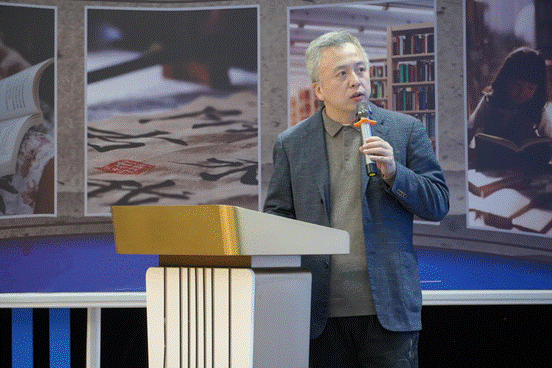
Ms. Jingxuan Wang, Director of the Data Elements Division at the Big Data Development Department of the National Information Center; Executive Director of the Data Elements Committee, China Information Industry Association, delivered a keynote presentation on constructing a multi-tiered data circulation and trading system. She suggested leveraging mature practices from traditional elements markets to establish an interconnected trading framework with coordinated on-exchange and off-exchange mechanisms, thereby enhancing the operational efficiency of the data elements market.
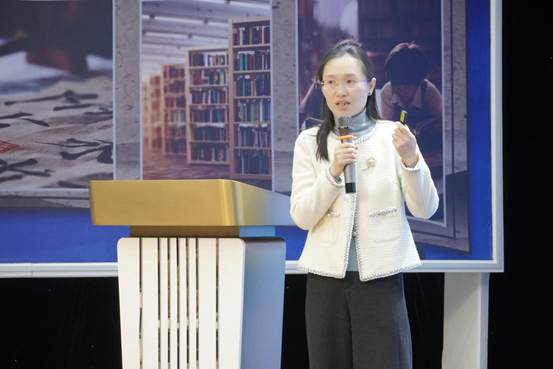
Professor Yikun Xia from the Research Center for Data Management Innovation at Nanjing University delivered a keynote presentation titled Ecological Networks and Operational Models of Trusted Data Spaces. She conducted an in-depth analysis of the value mechanisms and ecological characteristics of trusted data spaces, while systematically exploring operational model variations among government-led, market-driven, and third-party-administered frameworks. Her findings established critical references and theoretical foundations for advancing the construction and management of trusted data ecosystems.
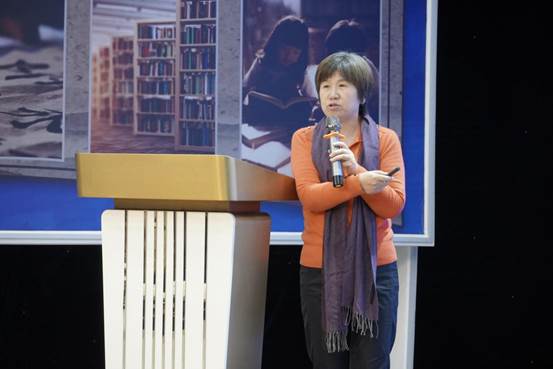
Mr. Le Du, General Manager of Wuhan East Lake Big Data Technology Co., Ltd., delivered a thematic report titled Data Valorization Practices and Explorations into Data Market-Maker Models. He systematically presented case studies of the company's innovative "Four-Step Methodology" for data-driven transformation, proposing a novel data market-maker framework to address core challenges in transactional ecosystems. This approach establishes new implementation pathways for optimizing operational architectures in data exchange platforms.
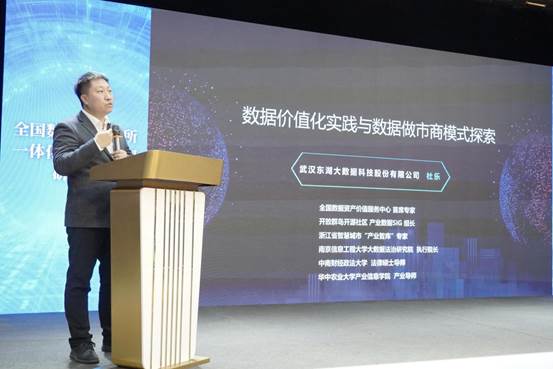
Mr. Zhenyang Lin, Vice President of iSoftStone Smart Technology Co., Ltd. and Senior Researcher at Wuhan Data Intelligence Research Institute, delivered an expert report titled Sustainable Operations of High-Quality Datasets: Facilitating Development of Data Circulation and Trading Ecosystems. Centering on developmental trends, strategic positioning, and system architectures, he articulated systematic development pathways for urban data elements markets while proposing sustainable operational frameworks to enhance transactional fluidity. These contributions formulate actionable implementation strategies for constructing next-generation urban data infrastructure.
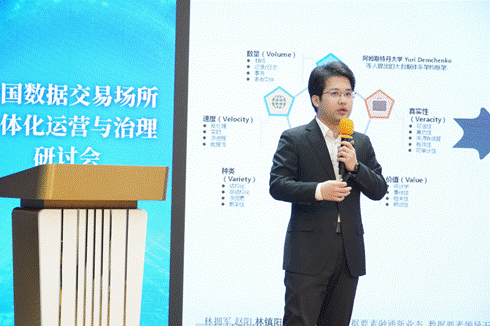
Dr. Ximing Yin, Head of the Department of Public Administration at Beijing Institute of Technology and member of the MIIT Expert Committee for the 15th Five-Year Plan, elaborated on the market-oriented development of data elements and new quality productive forces. He underscored that innovation leadership and data factor empowerment constitute the essential paradigm of new quality productive forces, while proposing the "scenario-driven innovation" framework and CDM (Contextualization-Data-Matching) mechanism. These conceptualizations establish a comprehensive theoretical foundation for advancing productive forces through data element integration.
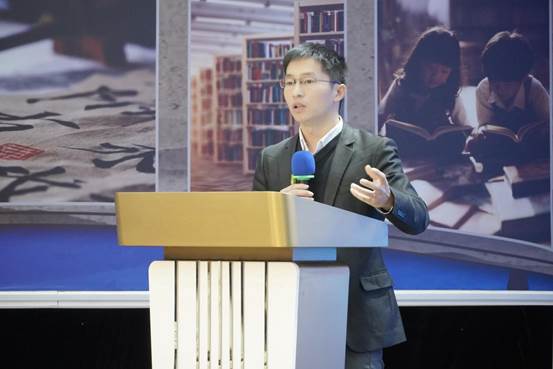
Mr. Zhen Fang, Executive Secretary-General of Xinhua Data Elements Research Center, presented an analytical report on industrial trusted data space development using traditional Chinese medicinal materials industry as a case study. Originating from industrial digital transformation imperatives, he introduced the "Quality-Trust Integration Framework" solution, supplemented by practical insights from Datong City's computing power industry advancement and data annotation ecosystem development. These empirical findings provide operational references for constructing domain-specific trusted data architectures.
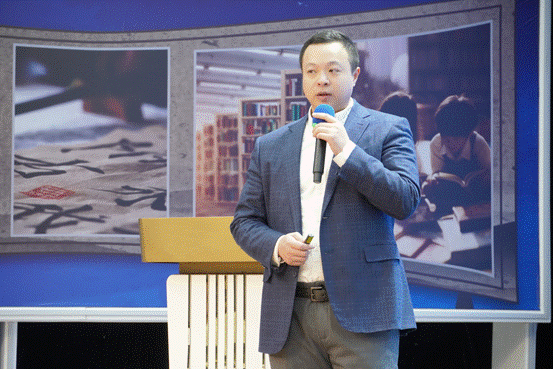
Mr. Rong Chen, Deputy General Manager of the Strategy Department at Shenzhen Data Exchange; Mr. Guocai Cai, Deputy General Manager of Fujian Big Data Trading Company; Ms. Lingyun Zeng, Deputy General Manager of Zhengzhou Data Trading Center; Mr. Dongxu Guo from Guiyang Big Data Exchange; and Dr. Qiang Ji, Researcher at Shanghai Data Exchange, engaged in panel discussions on "Theoretical and Practical Dimensions of China's Integrated Data Elements Market". Rong Chen articulated institutional standardization and market service optimization initiatives; Guocai Cai advocated demand-driven development of public data assets; Lingyun Zeng proposed governmental stewardship over data registry oversight; Dongxu Guo called for re-evaluating the "exchange-operator segregation" model with renewed focus on commercial viability; Qiang Ji recommended incentive-based policy formulation to alleviate data resource scarcity.
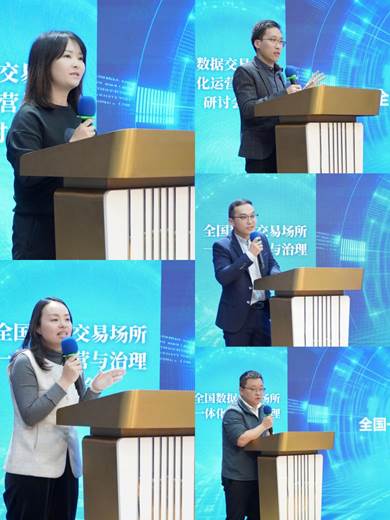
This Seminar synthesized intellectual capital from academic and industrial spheres, yielding conceptual blueprints for advancing data elements market institutional architecture. As convening entities, Wuhan University and Data Element Committee of the China Information Industry Association reaffirmed their commitment to intensifying academic stewardship and platform-enabled facilitation. Through progressive theoretical inquiries and empirical advancements, both institutions will sustain professional contributions toward perfecting China's integrated data elements market ecosystem.